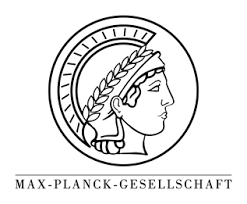Somehow, I didn't know about the 'Justice without the State - Workshop on the LOEWE Research Focus “Extrajudicial and Judicial Conflict Resolution” from 1-3 November 2012 held at the Goethe-University Frankfurt a.M., Casino, Room 1801 (Thursday) and IG-Farben-Building, Eisenhower Hall (Friday, Saturday). It's described as:

Justice is the leitmotif of all law. The jurisdiction also claims this self-conception for itself. In the western tradition the emblem of justice is represented by the figure of “Justitia”. In our modern understanding of the rule of law, which is affected by the western tradition, jurisdiction equals state jurisdiction. State jurisdiction is considered as the appropriate authority of just conflict resolution. Simultaneously the postulated ability for solving conflicts in accordance with the requirements of justice legitimizes state jurisdiction. Conflict resolution by non-state institutions raises the question of legitimacy, especially in sensitive areas like criminal law, but also generally.
The central concern of the LOEWE Research Focus “Extrajudicial and Judicial Conflict Resolution” is the interdisciplinary and international analyses of conflict, conflict activities and conflict resolution from a comparative, intercultural and historical perspective. Justification narratives of all forms of conflict resolution refer to justice, independent of its different outlines in a concrete historic-cultural context. This historic-cultural imprint not only left its mark on historical variations of conflict resolution but can also provoke controversies when assessing present forms of conflict resolution, because the present is also characterized by a plurality of concepts of equitable conflict resolution, which for their part are characterized by different historical roots.
At the conference “Justice without the state” this plurality is to be analyzed from a current and historical perspective. At first elements of concepts of justice and their relevance to institutionalized forms of conflict resolution are to be elaborated on from the perspective of different disciplines. Then the conference will concern itself with the problem of appropriate forms of equitable conflict resolution under the conditions of globalization. Thereafter procedures of conflict resolution in areas of limited statehood, in the transition from premodern to modern legal cultures and in non-state forms in the domain of a state-organized system of jurisdiction are to be analyzed.
The programme is available here.
Justice is the leitmotif of all law. The jurisdiction also claims this self-conception for itself. In the western tradition the emblem of justice is represented by the figure of “Justitia”. In our modern understanding of the rule of law, which is affected by the western tradition, jurisdiction equals state jurisdiction. State jurisdiction is considered as the appropriate authority of just conflict resolution. Simultaneously the postulated ability for solving conflicts in accordance with the requirements of justice legitimizes state jurisdiction. Conflict resolution by non-state institutions raises the question of legitimacy, especially in sensitive areas like criminal law, but also generally.
The central concern of the LOEWE Research Focus “Extrajudicial and Judicial Conflict Resolution” is the interdisciplinary and international analyses of conflict, conflict activities and conflict resolution from a comparative, intercultural and historical perspective. Justification narratives of all forms of conflict resolution refer to justice, independent of its different outlines in a concrete historic-cultural context. This historic-cultural imprint not only left its mark on historical variations of conflict resolution but can also provoke controversies when assessing present forms of conflict resolution, because the present is also characterized by a plurality of concepts of equitable conflict resolution, which for their part are characterized by different historical roots.
At the conference “Justice without the state” this plurality is to be analyzed from a current and historical perspective. At first elements of concepts of justice and their relevance to institutionalized forms of conflict resolution are to be elaborated on from the perspective of different disciplines. Then the conference will concern itself with the problem of appropriate forms of equitable conflict resolution under the conditions of globalization. Thereafter procedures of conflict resolution in areas of limited statehood, in the transition from premodern to modern legal cultures and in non-state forms in the domain of a state-organized system of jurisdiction are to be analyzed.
The programme is available here.

No comments:
Post a Comment